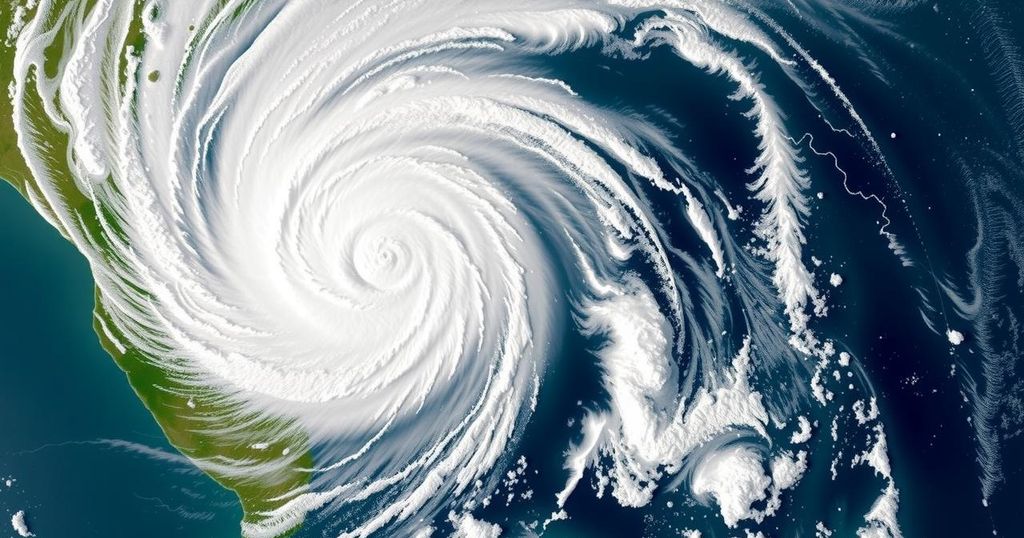Cyclone Chido Causes Widespread Devastation in Indian Ocean

Tropical Cyclone Chido has caused extensive damage and loss of life in the southwestern Indian Ocean, particularly in Mayotte and Mozambique. With at least 22 confirmed deaths in Mayotte and significant infrastructure destruction, urgent recovery efforts are underway. The cyclone also coincided with political tensions in Mozambique, leading to postponed protests amid the humanitarian crisis.
Tropical Cyclone Chido has inflicted significant devastation across several islands in the southwestern Indian Ocean, prompting urgent rescue and recovery efforts. As of Tuesday morning, the official death toll in Mayotte, the most severely affected French territory, stood at 22, with local officials warning that this figure could escalate to hundreds. Furthermore, approximately 1,400 individuals have sustained injuries due to the storm’s impact. In response, French President Emmanuel Macron plans to visit Mayotte soon and has announced a national day of mourning. The storm brought relentless winds and heavy rainfall, particularly devastating infrastructure on numerous islands, including Mayotte and Mozambique.
Cyclone Chido originated in the Indian Ocean between December 7 and 8, impacting Agalega atoll in Mauritius on December 11 and intensifying before striking Mayotte, severely damaging about 95% of buildings on the north island and around 98% in the south. Following its landfall in Mozambique on December 15, at least 34 fatalities have been reported, with preliminary assessments indicating that over 35,000 residences have been partially or totally destroyed. The cyclone is expected to weaken significantly as it moves inland towards Zimbabwe, as confirmed by the United Nations Office for the Coordination of Humanitarian Affairs. Simultaneously, Mozambique has experienced political unrest, with opposition leaders postponing protests amid the cyclone’s aftermath.
Cyclone Chido represents one of the most severe storm systems to affect the southwestern Indian Ocean region in nearly a century. Mayotte, a French overseas territory, has a vulnerable population, with many residing in informal housing that is ill-equipped to withstand such extreme weather conditions. The financial and infrastructural aid that the region typically receives from France has become essential given the devastation incurred. This cyclone also coincides with ongoing societal tensions in Mozambique, where political disputes have led to protests, adding another layer of complexity to the humanitarian crisis following the storm.
In conclusion, Tropical Cyclone Chido has resulted in significant loss of life and widespread destruction across multiple territories, particularly in Mayotte and Mozambique. The French government’s response includes military support and plans for a national day of mourning. In Mozambique, the cyclone’s devastation has compounded ongoing political issues, further complicating recovery efforts. As the storm dissipates, immediate humanitarian assistance will be crucial to alleviating the impacts faced by affected populations.
Original Source: www.bnnbloomberg.ca






